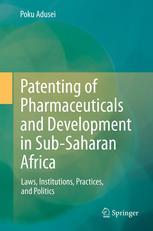

Most ebook files are in PDF format, so you can easily read them using various software such as Foxit Reader or directly on the Google Chrome browser.
Some ebook files are released by publishers in other formats such as .awz, .mobi, .epub, .fb2, etc. You may need to install specific software to read these formats on mobile/PC, such as Calibre.
Please read the tutorial at this link: https://ebookbell.com/faq
We offer FREE conversion to the popular formats you request; however, this may take some time. Therefore, right after payment, please email us, and we will try to provide the service as quickly as possible.
For some exceptional file formats or broken links (if any), please refrain from opening any disputes. Instead, email us first, and we will try to assist within a maximum of 6 hours.
EbookBell Team

0.0
0 reviewsThis book critically investigates the patent protection of medication in light of the threats posed by HIV/AIDS, malaria and tuberculosis epidemics to the citizens of countries in Sub-Saharan Africa (hereinafter “SSA” or “Africa”). The book outlines the systemic problems associated with the prevailing globalized patent regime and the regime’s inability to promote access to life-saving medication at affordable prices in SSA. It argues that for pharmaceutical patents to retain their relevance in SSA countries, human development concepts must be integrated into global patent law- and policy-making. An integrative approach implies developing additional public health and human development exceptions/limitations to the exercise of patent rights with the goal of scaling up access to medication that can treat epidemics in SSA. By drawing on multiple perspectives of laws, institutions, practices, and politics, the book suggests that SSA countries adopt an evidence-based approach to implementing global patent standards in domestic jurisdictions. This evidence-based approach would include mechanisms like local need assessments and the use of empirical data to shape domestic patent law-making endeavors. The approach also implies revising patent rules and policies with a pro-poor and pro-health emphasis, so that medication will be more affordable and accessible to the citizens of SSA countries. It also suggests considering the opinions of individuals and pro-access institutions in enacting crucial pieces of health-related statutes in SSA countries. The approach in this book is sensitive to the public health needs of the citizens affected by epidemics and to the imperative of building local manufacturing facilities for pharmaceutical research and development in SSA.